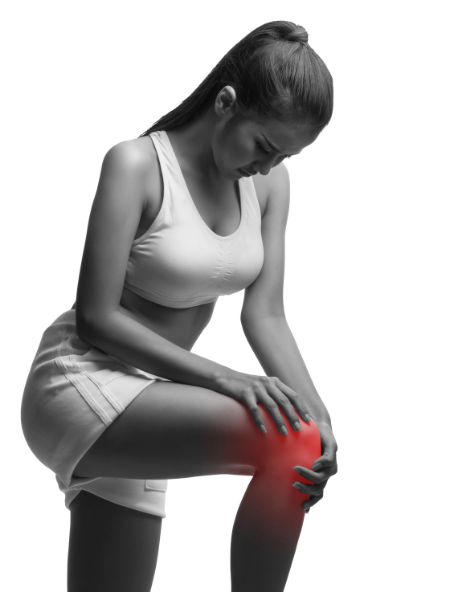Osteopathy For knee pain
Knee pain is a prevalent issue that affects individuals of all ages, from athletes to those with sedentary lifestyles. Statistics indicate that approximately 25% of adults experience knee pain at some point in their lives, making it one of the most common musculoskeletal complaints.
Risk factors for knee osteoarthritis have been found to be: overweight or obesity, previous knee injury, older age and female gender (Szilagyi, Waarsing, van Meurs, Bierma-Zeinstra, & Schiphof, 2022).
Early assessment and appropriate treatment are crucial for managing knee pain and maintaining mobility.
Make a booking online to see your Box Hill Osteopath.
Common causes of knee pain
Injuries: Sprains, strains, and tears (such as ACL or meniscus tears) often occur during sports or physical activities.
Osteoarthritis: This degenerative joint disease leads to the breakdown of cartilage, causing pain, swelling, and stiffness.
Rheumatoid Arthritis: An autoimmune condition that causes inflammation and pain in the joints, including the knees.
Tendonitis: Inflammation of the tendons, often from overuse, can cause pain in and around the knee.
Bursitis: Inflammation of the bursa (small fluid-filled sacs that reduce friction) can result in pain and swelling.
Patellar Tracking Disorder: Improper alignment of the kneecap can cause pain during movement.
Common symptoms for knee pain
Individuals experiencing knee pain may notice a variety of symptoms, including:
Persistent pain in or around the knee joint
Swelling and inflammation in the knee area
Stiffness or reduced range of motion
A clicking or popping sensation during movement
Difficulty bearing weight or walking
Pain that worsens with activity or prolonged sitting
3 Osteopathic tips for Knee Pain
If you are below 49 years of age and had an acute knee injury, where we suspect there has been injury to a meniscus or ACL, you may be able to get a medicare rebate MRI. To do this you need to get a referral through the GP, which will save you from out of pocket expenses.
The GLA:D program is a great evidence based rehabilitation approach to treat patients with knee osteoarthritis. You can speak to your Osteopath for more information.
Oftentimes, besides direct trauma to the knee, knee complaints result from dysfunctions in the hip and or foot/ankle. This is because both the hip and ankle should have greater mobility in comparison to the knee, so when they are not moving optimally, they place greater stress on the knee itself.
Osteopathy offers a holistic approach to treating knee pain by addressing both the symptoms and underlying causes. Treatment may include:
Manual Therapy: Osteopathic techniques aim to relieve tension, improve joint mobility, and enhance circulation in the knee and surrounding areas.
Exercise Rehabilitation: Customized exercise programs strengthen the muscles supporting the knee, improve flexibility, and promote healing.
Biomechanical Assessment: Evaluating your gait and posture can help identify contributing factors to knee pain, guiding targeted interventions.
Lifestyle and Ergonomic Advice: Osteopaths provide recommendations on proper footwear, activity modification, and ergonomic adjustments to reduce strain on the knee.
If you are suffering from knee pain, our clinic is dedicated to helping you find relief. Our skilled osteopaths will work with you to create a personalized treatment plan aimed at alleviating pain and restoring function. Don’t let knee pain limit your daily activities— Book in online today to schedule an appointment!


